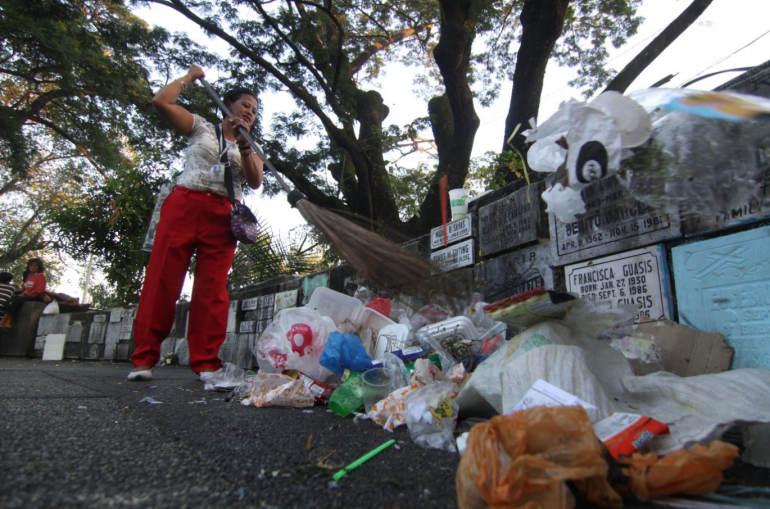Waste watchdog appeals to Filipinos to avoid littering in cemeteries

A waste and pollution watchdog appealed to the Filipino faithful to avoid littering in cemeteries as people are expected to visit the tombs of their dear departed in the coming days.
“Aside from the minimum public health protocols that all visitors must observe, we enjoin everyone to leave nothing but flowers and prayers in the cemeteries,” said Jove Benosa, zero waste campaigner of the EcoWaste Coalition.
She said littering in cemeteries “disrespects the dead, the living, and Mother Earth, too, and can no longer be tolerated.”
The annual two-day tradition of visiting the graves of their loved ones or “Undas” is a major family affair in the Philippines and used to be an occasion for singing, dancing and merrymaking in cemeteries before the pandemic.
This year, authorities announced that all cemeteries across the Philippines will be closed from October 29 to November 2 to prevent the spread of the coronavirus disease.
People can, however, visit the tombs of their departed loved ones any day except on the said days, but will be required to observe basic health protocols, including the wearing of face masks and shields and the observance of physical distancing.
In an interview over Church-run Veritas 846, the EcoWaste Coalition also called on politicians running in next year’s national elections not to place campaign materials in cemeteries.
“Let’s keep our cemeteries free of garbage, as well as partisan politics,” said Benosa.
In the past, the EcoWaste Coalition noted the ill-preparedness of government agencies and cemetery administrators to deal with discards from the large number of visitors.
Among the typical discards found in the cemeteries were food leftovers, paper and plastic food containers and wrappers, plastic bags, plastic bottles, plastic cups, cigarette butts, grass cuttings and other yard waste, and commercial and religious leaflets.
Radio Veritas Asia (RVA), a media platform of the Catholic Church, aims to share Christ. RVA started in 1969 as a continental Catholic radio station to serve Asian countries in their respective local language, thus earning the tag “the Voice of Asian Christianity.” Responding to the emerging context, RVA embraced media platforms to connect with the global Asian audience via its 21 language websites and various social media platforms.











